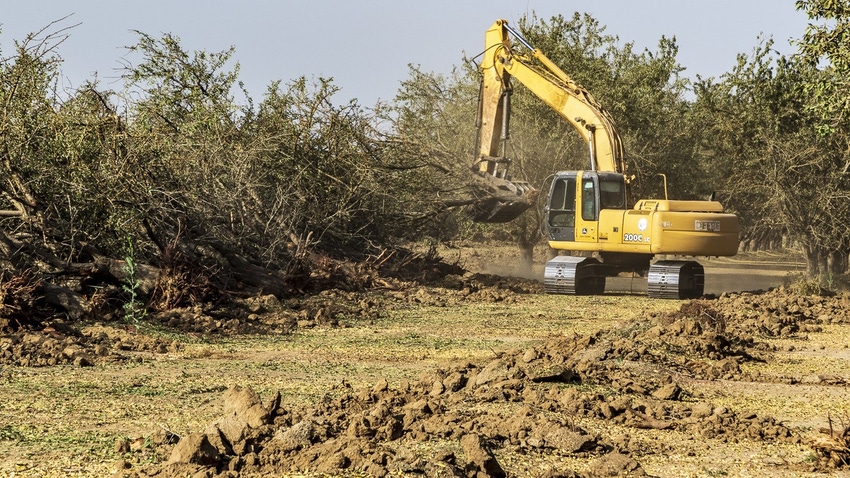
A company that facilitates investments in biomass has given the Modesto, Calif., area a high rating for its potential to build an industry that repurposes almond products.
In a project supported by the Almond Board of California, Ecostrat Inc. has announced a rare “AA” rating for a bioeconomy development opportunity (BDO) zone in the northern San Joaquin Valley.
It’s North America’s first BDO zone rating for orchard biomass, nut tree shells and almond hulls, the Almond Board and Ecostrat noted in a release.
“The goal is to raise the visibility and attract new facilities and investors for biomass-based industries, such as biofuels, specialty chemicals and more,” Almond Board spokesman Rick Kushman said in an email. “The Almond Board of California co-funded the assessment that earned the high rating. ABC believes these biomass industries would add value to the almond industry and would also help with environmental stewardship even more.”
The project’s other partners are BEAM Circular, a nonprofit organization that promotes bioindustrial manufacturing, and Stanislaus County.
BDO zones enable high-potential “biomass-rich” communities to tap into the trillion-dollar bioenergy sector, Ecostrat officials have explained. The company has been conducting a technical risk assessment of biomass feedstock, supply chain and infrastructure attributes of the region to determine its attractiveness to investors.
Using biomass
The analysis looked at the area’s potential for making use of various types of biomass, including fruit and almond tree waste and almond shells, as sources of clean energy.
The “AA” rating denotes “very high quality” feedstock supply chains and infrastructure, company officials said. The analysis found that the area exhibits a longstanding industry supported by 6,300 nut tree growers and suppliers along with a robust network of processors and separators of nuts from shells and hulls in concentrated locations.
Decreasing demand for local biomass along with significant quantities of feedstock now available for the cost of transportation create ideal conditions for large-scale bio-project development, the partners’ release said. Significant infrastructure advantages include flexible zoning, access to natural gas, rail connectivity, and proximity to an extensive highway system.
The northern San Joaquin Valley is one of dozens of budding BDO zones for different products around the country. A coalition of capital markets and investors, including Goldman Sachs and Citibank, have allocated $1 billion toward the initiative.
The project comes as the Almond Board has been zeroing in on a set of sustainability goals for 2025, including finding a use for all orchard waste.
For more information about the northern SJV rating, visit www.bdozone.org.
Read more about:
AlmondsAbout the Author(s)
You May Also Like






